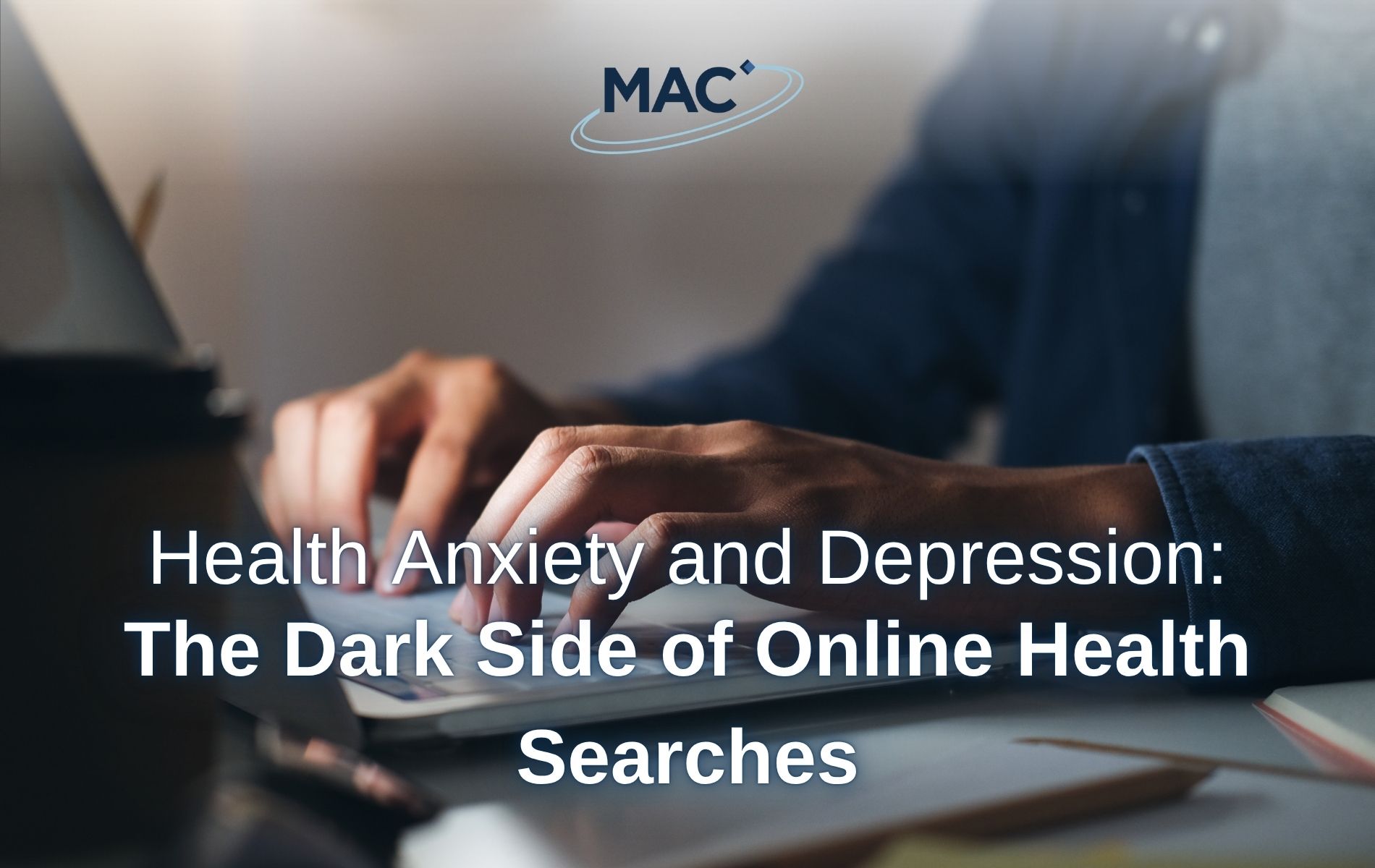When you’re feeling unwell or have just been diagnosed with a condition, it’s natural to search online for more information. This can both help and hinder your understanding of your health. Though there are many helpful health resources available, there are just as many with incorrect or fear-mongering content. Over-exposure to this negative content can fuel misinformation and result in damage to our mental health1.
Health anxiety and depression
Health anxiety is the pervasive worry that you are unwell, or going to become unwell, to the point that it begins to overwhelm your life. This manifests through a range of symptoms such as:
- Perpetual worry about your health
- Constantly checking your body for signs of illness
- Behaving as you would if you were ill (i.e. avoiding activities)
- Persistent worry that a doctor or medical test may have missed something
- Regularly asking people for reassurance that you’re not ill
It can also involve obsessively searching online or in the media for health information2. This can create a negative feedback loop whereby searching for negative content can exacerbate anxiety and depression symptoms, which can then make you more likely to keep browsing distressing content1.
Cyberchondria
Cyberchondria is a condition characterised by excessively and repetitively searching for health information online, leading to increased health anxiety. It often presents as a cycle of searching for perceived symptoms, discovering potentially concerning information, and, as a result, experiencing heightened anxiety. This happens even when the information is unreliable and without evidence of any serious illness 3.
Cyberchondria overlaps in many ways with health anxiety but is associated with greater functional impairment and use of healthcare services3. It is also linked to a decreased quality of life and increased risk of depression4.
How to manage health anxiety
Reducing the impact of health anxiety on your daily life is complicated, and removing yourself from the cycle of obsessive online health searches is just one step. To help you improve your relationship with your health and healthcare, we have pulled together some guidance on how to manage health anxiety:
- Keep track of your behaviour: Monitor how often you check yourself for illness, look at health information, or ask people for reassurance. Take small steps to reduce these actions on a weekly basis.
- Challenge your negative thoughts: Rather than focusing on the negative, try to list out your worries and then confront each thought with a more balanced one. For example: ‘I’m worried about feeling nauseated’ could be challenged by ‘Nausea can often be a sign of stress; what am I stressed about?’.
- Distract yourself where possible: By keeping yourself busy with other activities when you have these thoughts, it can help break you from the negative spiral. Try calling a friend or going for a walk when you find yourself overwhelmed. It may also help you to slowly return to activities that you may have been avoiding because of your health worries, such as socialising, sports, or going to public places. Showing yourself that you can do these things may help challenge your worries of being unwell.2.
Removing yourself from this negative cycle can help improve your general wellbeing and mood and reduce feelings of anxiety and depression1.
Is depression making you feel numb?
Up to one-third of adults with depression don’t fully recover with the current treatments that are available. Here at MAC, we are trialling an alternative treatment for depression with feelings of numbness or lack of joy. You may receive up to £4445 for taking part in this study. Find out more on our depression research webpage.
References
1 Psychiatrist.com – How Online Browsing Shapes – and Reflects – Mental Health
2 NHS UK – Health anxiety
3 Mathes et al. (2018) – Cyberchondria: Overlap with health anxiety and unique relations with impairment, quality of life, and service utilization – PubMed
4 Kartal et al. (2023) – Investigation of the relationship between depression, cyberchondria levels and the quality of life of female students during the COVID-19 pandemic




